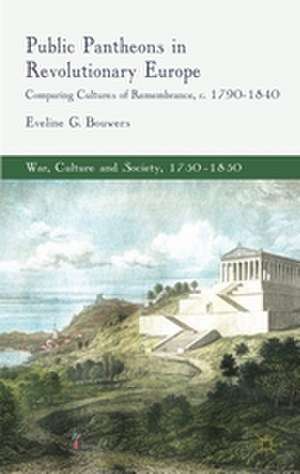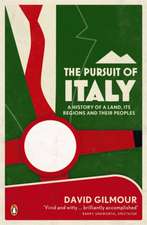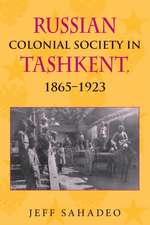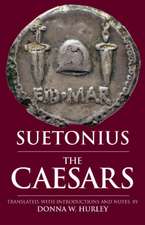Public Pantheons in Revolutionary Europe: Comparing Cultures of Remembrance, c. 1790-1840: War, Culture and Society, 1750–1850
Autor E. Bouwersen Limba Engleză Hardback – 22 noi 2011
| Toate formatele și edițiile | Preț | Express |
|---|---|---|
| Paperback (1) | 390.84 lei 6-8 săpt. | |
| Palgrave Macmillan UK – 2012 | 390.84 lei 6-8 săpt. | |
| Hardback (1) | 396.62 lei 6-8 săpt. | |
| Palgrave Macmillan UK – 22 noi 2011 | 396.62 lei 6-8 săpt. |
Din seria War, Culture and Society, 1750–1850
- 20%
 Preț: 691.13 lei
Preț: 691.13 lei - 15%
 Preț: 694.87 lei
Preț: 694.87 lei - 15%
 Preț: 705.18 lei
Preț: 705.18 lei - 15%
 Preț: 705.99 lei
Preț: 705.99 lei - 15%
 Preț: 587.20 lei
Preț: 587.20 lei - 15%
 Preț: 640.88 lei
Preț: 640.88 lei -
 Preț: 202.05 lei
Preț: 202.05 lei -
 Preț: 388.72 lei
Preț: 388.72 lei - 15%
 Preț: 644.95 lei
Preț: 644.95 lei - 18%
 Preț: 791.88 lei
Preț: 791.88 lei - 15%
 Preț: 647.40 lei
Preț: 647.40 lei -
 Preț: 196.88 lei
Preț: 196.88 lei -
 Preț: 385.08 lei
Preț: 385.08 lei -
 Preț: 213.58 lei
Preț: 213.58 lei - 15%
 Preț: 645.79 lei
Preț: 645.79 lei - 15%
 Preț: 699.28 lei
Preț: 699.28 lei - 18%
 Preț: 895.45 lei
Preț: 895.45 lei - 18%
 Preț: 729.53 lei
Preț: 729.53 lei - 15%
 Preț: 643.34 lei
Preț: 643.34 lei -
 Preț: 396.40 lei
Preț: 396.40 lei -
 Preț: 388.13 lei
Preț: 388.13 lei - 15%
 Preț: 698.94 lei
Preț: 698.94 lei - 15%
 Preț: 646.43 lei
Preț: 646.43 lei - 15%
 Preț: 642.18 lei
Preț: 642.18 lei -
 Preț: 383.93 lei
Preț: 383.93 lei - 15%
 Preț: 700.61 lei
Preț: 700.61 lei - 18%
 Preț: 788.09 lei
Preț: 788.09 lei - 18%
 Preț: 723.38 lei
Preț: 723.38 lei - 15%
 Preț: 535.84 lei
Preț: 535.84 lei - 15%
 Preț: 694.04 lei
Preț: 694.04 lei - 18%
 Preț: 730.35 lei
Preț: 730.35 lei
Preț: 396.62 lei
Nou
Puncte Express: 595
Preț estimativ în valută:
75.90€ • 79.14$ • 63.08£
75.90€ • 79.14$ • 63.08£
Carte tipărită la comandă
Livrare economică 20 martie-03 aprilie
Preluare comenzi: 021 569.72.76
Specificații
ISBN-13: 9780230294714
ISBN-10: 0230294715
Pagini: 325
Ilustrații: XV, 325 p.
Dimensiuni: 152 x 229 x 28 mm
Greutate: 0.62 kg
Ediția:2012
Editura: Palgrave Macmillan UK
Colecția Palgrave Macmillan
Seria War, Culture and Society, 1750–1850
Locul publicării:London, United Kingdom
ISBN-10: 0230294715
Pagini: 325
Ilustrații: XV, 325 p.
Dimensiuni: 152 x 229 x 28 mm
Greutate: 0.62 kg
Ediția:2012
Editura: Palgrave Macmillan UK
Colecția Palgrave Macmillan
Seria War, Culture and Society, 1750–1850
Locul publicării:London, United Kingdom
Cuprins
Acknowledgments Introduction: The Journey of the European Pantheonic Imagination Pantheon: the History of a Concept on the Move Competition in the Parliamentary Pantheon in London The Eclipse of Exemplarity: the Imperial Pantheon in Paris A Papal Pantheon? Canova's 'illustrious Italians' in Rome 'National education' in a Royal Pantheon in Regensburg Conclusions: Public Pantheons: a European History? Bibliography Appendices
Recenzii
“The role of historical memory in modern culture and the politics of commemoration have become of immense importance to historians over recent years. … Eveline Bouwers’s book makes a fascinating, richly-documented and well-written contribution to this area of debate. … Well-written, with a good eye for detail and the telling quotation from primary sources, Bouwers’s important contribution to the scholarship of historical memory will be of great interest to anyone working on nineteenth-century political culture, national identity and the politics of remembrance.” (Michael Rapport, English Historical Review HER, Vol. 131 (548), February, 2016)
“There is a great deal in this very impressive and accomplished book to recommend it to both scholars and students. Bouwers operates with enviable assurance in four very different historical contexts (and languages), her interdisciplinary approach is cogent, and her case studies are very informative.” (Richard Wittman, European Review of History - Revue européenne d'histoire, Vol. 22 (06), 2015)
“Covering four nations and four languages, this thought-provoking, ambitious and impressively researched work offers an insightful comparative and transnational study of ‘cultures of remembrance’ in Europe during the age of revolutions. … Bouwers’s erudite comparative and transnational study forms a noteworthy addition to the literatures on modern cultures of remembrance, collective memory, and ultimately also national identity (including its limits).” (Brian Vick, German History, Vol. 32 (3), September, 2014)
“As a transnational phenomenon, pantheon construction merits attention by anyone interested in the notion of “Europe” in the Enlightenment and revolutionary eras. In her recent book, Eveline Bouwers focuses attention on the relationships among British, French, Italian, and German pantheons. Working with admirable multilingual facility, Bouwers draws on sourcesfrom each national context.” (Susan A. Crane, Journal of Modern History, Vol. 86 (1), March, 2014)
“The Revolution translated into practice the promises of the century that gave birth to it: replacing the eulogy of sovereigns with the memory of great writers, artists, scientists. … It is here that a comparative European history enables to shift the perspective. … Each case is well documented and skillfully studied. This is particularly profitable for her discussion of the Roman and Bavarian episodes, which are less well-known.” (Translated from French, Antoine Lilti, Annales: Histoire, Sciences Sociales, Vol. 69 (1), March, 2014)
“Showing impressive linguistic versatility Bouwers compares pantheons in France, England, Italy and Germany using an interdisciplinary and comparative framework to prove her central thesis that the four pantheons studied in this book were ‘partisan interpretations of a selectively retrieved past’. … the beauty and value of this book is its identification of trans-European trends while at the same time juxtaposing the differences and national quirks and approaches” (Anne O’Connor, Modern Italy, Vol. 18 (04), November, 2013)
“There is a great deal in this very impressive and accomplished book to recommend it to both scholars and students. Bouwers operates with enviable assurance in four very different historical contexts (and languages), her interdisciplinary approach is cogent, and her case studies are very informative.” (Richard Wittman, European Review of History - Revue européenne d'histoire, Vol. 22 (06), 2015)
“Covering four nations and four languages, this thought-provoking, ambitious and impressively researched work offers an insightful comparative and transnational study of ‘cultures of remembrance’ in Europe during the age of revolutions. … Bouwers’s erudite comparative and transnational study forms a noteworthy addition to the literatures on modern cultures of remembrance, collective memory, and ultimately also national identity (including its limits).” (Brian Vick, German History, Vol. 32 (3), September, 2014)
“As a transnational phenomenon, pantheon construction merits attention by anyone interested in the notion of “Europe” in the Enlightenment and revolutionary eras. In her recent book, Eveline Bouwers focuses attention on the relationships among British, French, Italian, and German pantheons. Working with admirable multilingual facility, Bouwers draws on sourcesfrom each national context.” (Susan A. Crane, Journal of Modern History, Vol. 86 (1), March, 2014)
“The Revolution translated into practice the promises of the century that gave birth to it: replacing the eulogy of sovereigns with the memory of great writers, artists, scientists. … It is here that a comparative European history enables to shift the perspective. … Each case is well documented and skillfully studied. This is particularly profitable for her discussion of the Roman and Bavarian episodes, which are less well-known.” (Translated from French, Antoine Lilti, Annales: Histoire, Sciences Sociales, Vol. 69 (1), March, 2014)
“Showing impressive linguistic versatility Bouwers compares pantheons in France, England, Italy and Germany using an interdisciplinary and comparative framework to prove her central thesis that the four pantheons studied in this book were ‘partisan interpretations of a selectively retrieved past’. … the beauty and value of this book is its identification of trans-European trends while at the same time juxtaposing the differences and national quirks and approaches” (Anne O’Connor, Modern Italy, Vol. 18 (04), November, 2013)
Notă biografică
EVELINE G. BOUWERS Postdoctoral Research Fellow at Bielefeld University, Germany. Her current research focuses on the use of violence and iconoclasm in the culture wars of modern Europe. She studied history, art history, and political science in Utrecht, Leuven and Amsterdam and holds a PhD from the European University Institute.















